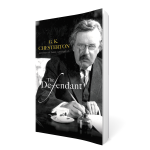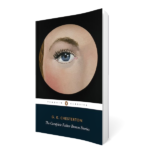It strikes some readers as strange that Chesterton, a highly respected literary critic, could take seriously the lowly detective story. But he did take it seriously.
Because the plots of the classic detective stories were designed to vindicate good and to rebuke evil, Chesterton saw them as a modern morality tales. He saw the great fictional detective as an urban version of a knight errant backing the cause of law and order against the forces of crime and disorder. And he admired the detective story writers for updating the country tales of brigands and blackguards to create a new kind of adventure-romance for the cities.
Chesterton did not claim a literary superiority for the formula mystery story compared with the novels critics take seriously. But he did claim that detective stories, packed as they must be with dangers and surprises, present a more accurate portrayal of life. Life itself is packed with dangers and surprises, he argued.
Chesterton saw detective stories as a series of contests between individual free wills rather than as the conflict of impersonal forces. In his view, modern novels of psychological urges or social pressures are inferior in representing life because their outcomes seem inevitable. The great thing about a murder mystery is that the reader has no idea who has done the grisly deed. As Father Brown explained,
Our general experience is that every conceivable sort of man has been a saint. And I suspect you will find, too, that every conceivable sort of man has been a murderer.
In that sense, Chesterton saw the detective story as a parable of the doctrine of Original Sin.


